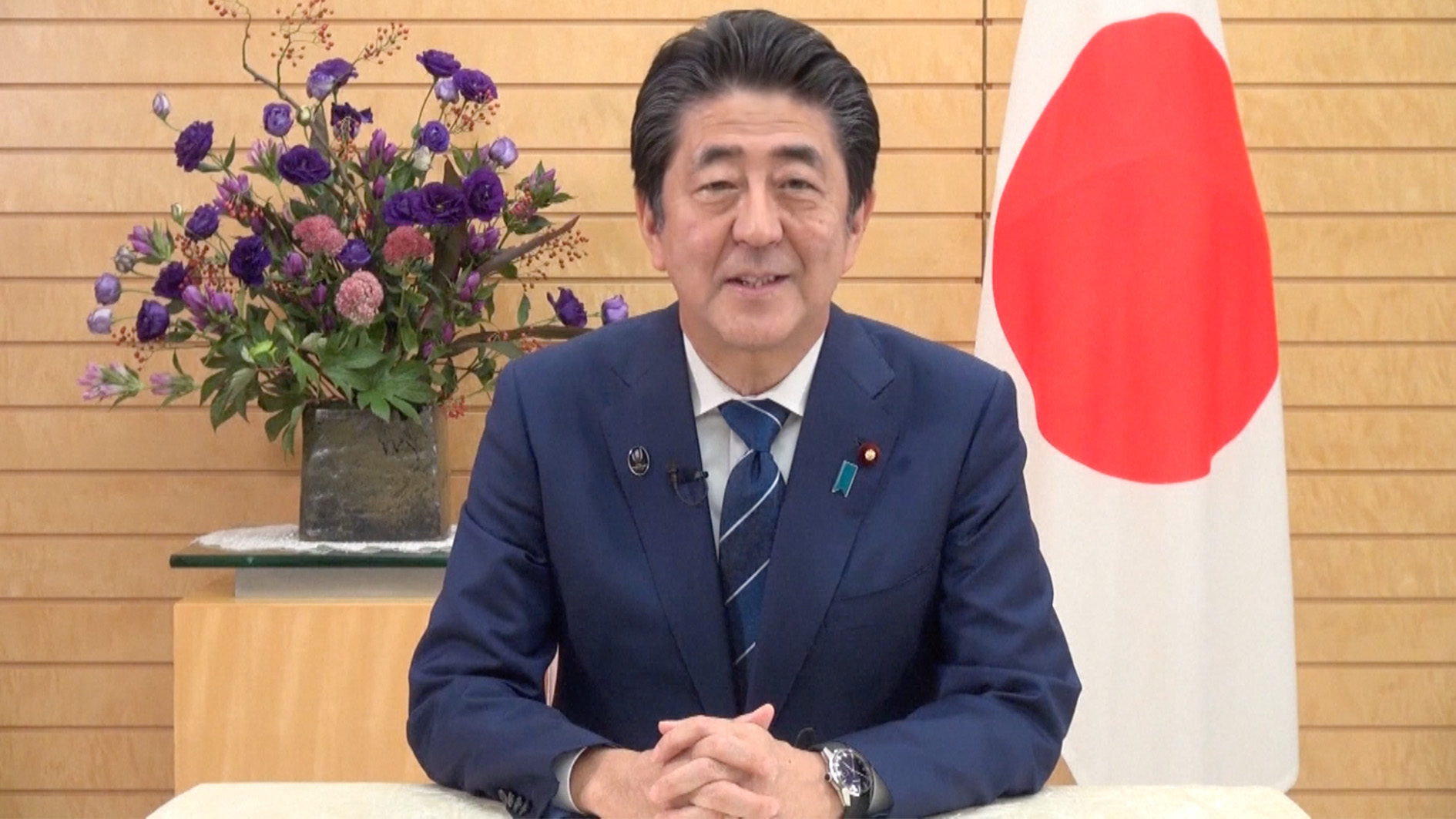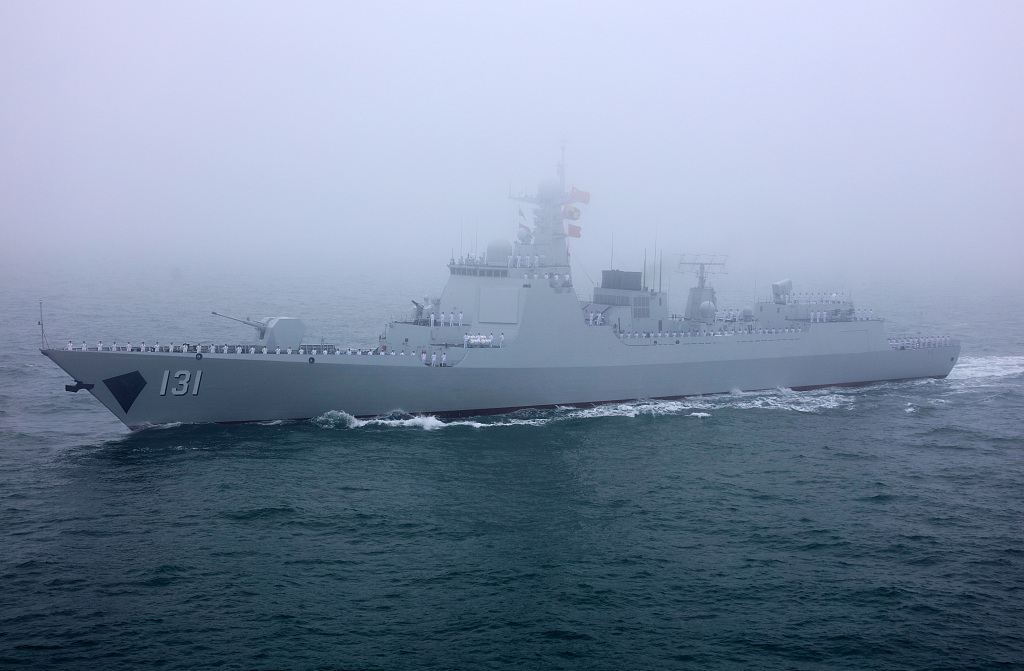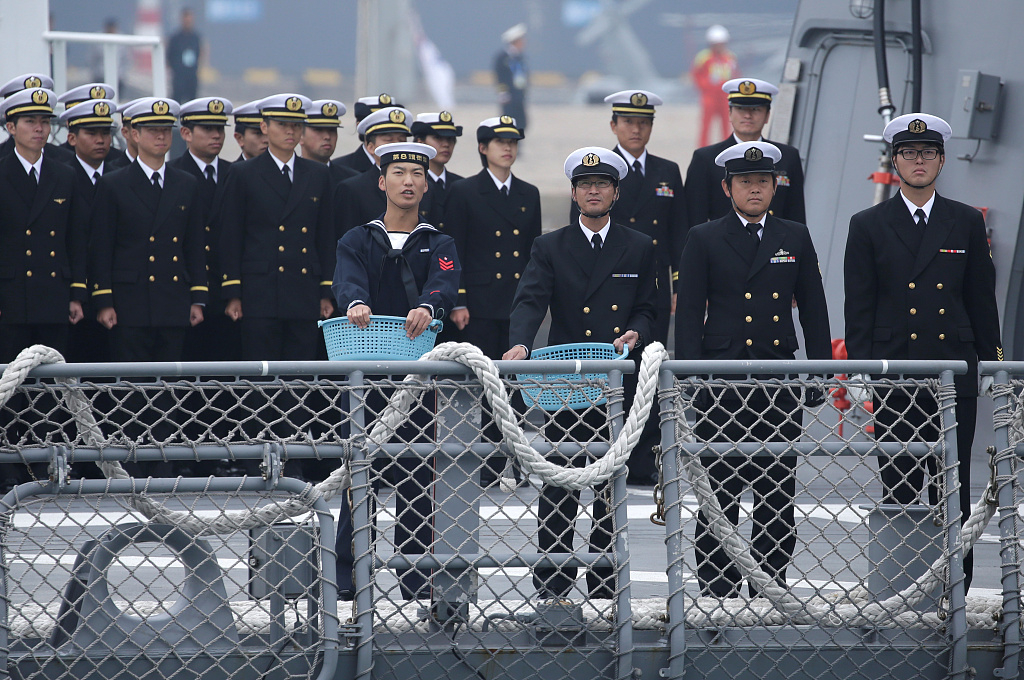Japanese Prime Minister Shinzo Abe on Wednesday vowed to promote exchanges with China at various levels to open up a new era in Japan-China ties. It is the third time in two weeks that Abe has expressed willingness to promote bilateral ties.
On September 26 ahead of the 70th anniversary of the founding of the People's Republic of China (PRC), Abe sent a congratulatory video message, in which he said he and Chinese President Xi Jinping have reached an important consensus on building Japan-China relations that meet the requirements of the new era during their meeting in Osaka in June.
"I believe the cooperation between the two sides for coping with regional and global issues will pave the way to build a new model for the two countries' relations in the future," Abe noted in the video.
01:44

The Chinese side voiced its appreciation to Abe's message. Foreign Ministry spokesperson Geng Shuang said the video message reflects the positive momentum of the current improvement in Sino-Japanese relations.
Last Friday, in a policy speech outlining his goals ahead in an extraordinary Diet session, Abe vowed to push bilateral ties to "a new stage" and open up a new era.
He also said that exchanges between Japan and China should not be limited to leaders of the two countries, but should be expanded to all areas, including economic and youth exchanges.

Improving relations between the two nations at the military level also creates favorable conditions to push forward China-Japan relations in the new era.
China recently sent one of its newest and most advanced destroyers to participate in the Japan Maritime Self-Defense Force fleet review, scheduled for October 14 at Sagami Bay, southwest of Tokyo.
The Taiyuan 131, a guided missile destroyer that left a military port in Zhoushan, east China's Zhejiang Province, arrived at Japan's Yokosuka port earlier on Thursday.

The guided missile destroyer Taiyuan of the Chinese People's Liberation Army (PLA) Navy participates in a naval parade to celebrate the 70th anniversary of the founding of China's PLA Navy in the sea near Qingdao, east China, April 23, 2019. /VCG Photo
The guided missile destroyer Taiyuan of the Chinese People's Liberation Army (PLA) Navy participates in a naval parade to celebrate the 70th anniversary of the founding of China's PLA Navy in the sea near Qingdao, east China, April 23, 2019. /VCG Photo
Senior military official Gong Yuanxin said the visit aims to "deepen communication with the navies of other countries and improve mutual understanding, and promote cooperation and mutual trust."
This is the first time the People's Liberation Army (PLA) Navy has participated in a naval review hosted by Japan and is yet another exchange of visits between Chinese and Japanese warships after eight years.
Japan sent a JS Suzutsuki destroyer to join a naval parade held in April this year off the coast of east China's Shandong Province to celebrate the 70th anniversary of the founding of the PLA Navy.

Japanese officers and sailors on board Maritime Self-Defense Force destroyer JS Suzutsuki which arrives at Qingdao Port for the 70th anniversary celebrations of the founding of the PLA Navy, in Qingdao, China, April 21, 2019. /VCG Photo
Japanese officers and sailors on board Maritime Self-Defense Force destroyer JS Suzutsuki which arrives at Qingdao Port for the 70th anniversary celebrations of the founding of the PLA Navy, in Qingdao, China, April 21, 2019. /VCG Photo
The two sides also agreed to launch a maritime and aerial communication mechanism between their defense departments as soon as possible and to further enhance communications in the defense area at their seventh round of high-level consultations on maritime affairs in June.
Ren Guoqiang a Ministry of National Defense spokesperson earlier said China-Japan military exchanges and cooperation are important components of bilateral relations and expressed China's wiliness to enhance exchanges of the two defense establishments, properly manage and control differences, and enhance mutual trust.
(With input from Xinhua)